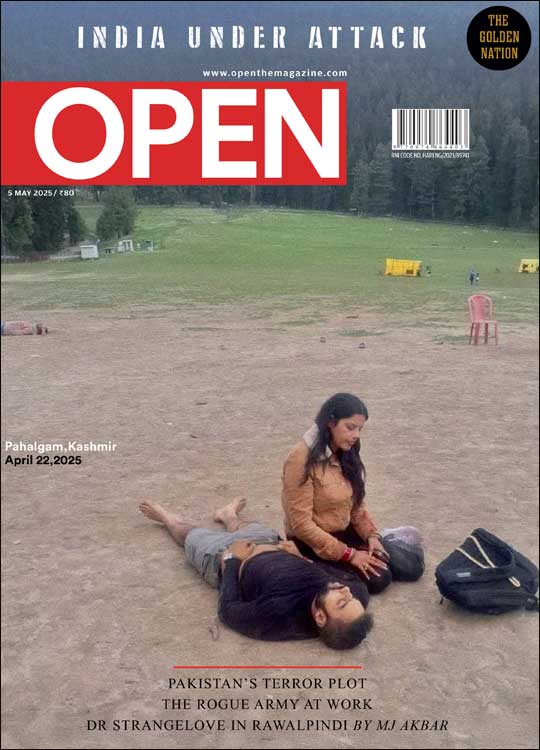Grassroots Capitalism
India’s first software product unicorn taps into underprivileged youth
/wp-content/uploads/2019/03/Grassrootscapitalism1.jpg)
AROUND THIS TIME last year, a delegation from Kawanehon, a picturesque town on the upper reaches of the River Oi in Japan’s Shizuoka prefecture, descended on the town of Tenkasi in southern Tamil Nadu. The group, including businessmen, policymakers and elected representatives, was here to film and to learn from a socioeconomic experiment now into its eighth year. In 2011, Zoho Corp, a software product company headquartered in Chennai, opened an office in Tenkasi, a town of about 100,000 in Tirunelveli district, hoping to train and employ local youth. Ten product teams with 300 people, besides a floating population of about 200, now work from the office, with plans to exponentially increase capacity in the next couple of years. Zoho Desk, a web-based helpdesk software, was entirely built in Tenkasi. The people from Kawanehon, with a population of about 6,000 at a density of about 13 people per sq km, had come chasing a ray of hope all the way across the China Sea and the Bay of Bengal. “They are worried they will die out as a community. Faced with bleak economic prospects, people have stopped making babies and are increasingly migrating to Tokyo. There are no local jobs. When we opened a small office there, and added all of two jobs to the town economy, they jumped at a chance to see if they could replicate our story,” says Sridhar Vembu, CEO of Zoho and a pin-up for not just software product start- ups but also for grassroots capital.
Zoho’s story is one of building communities and inscribing the local landscape onto globally facing products. With over 40 products ranging from an office suite to customer relationship management (CRM), accounting and invoicing software, and a cloud drive, Zoho offers end-to-end business productivity software solutions that rival those of Amazon and Google—at much lower prices. India’s first software product unicorn, Zoho’s remarkable success stands entirely on the shoulders of underprivileged youth from the outskirts of Chennai— and now from Tenkasi and Renigunta in Andhra Pradesh, the site of Zoho’s newest development centre. Vembu believes software development cannot exist in a social vacuum—or in an insular glass techpark at odds with its surroundings. It draws nourishment from, and adds value to, a community. “In India, we went from socialism to shiny financialisation, bypassing small towns and villages and forcing people to migrate to overcrowded cities. We never tried grassroots capitalism. It is the capitalists who must fix the skew,” says Vembu, Zoho’s resident economist and philosopher. The price of a city life, for first-generation college-goers, is a lifetime of debt. Tamil Nadu, a state that has institutionalised an engineering degree as the common minimum academic standard for any job, leads in the volume of educational loans—Rs 1,932.82 crore in 2017-18 according to the Reserve Bank of India (RBI)—as well as in the ratio of defaults. “A typical migrant to a city will spend the entirety of his or her working life in debt—student debt, then a mortgage, then car debt, vacation debt. We have conveniently financialised the problem without studying the social consequences of debt culture,” says Vembu, referring to Tamil Nadu’s falling total fertility rate, among the lowest in India at 1.6 children per woman. Since Zoho’s payscale is the same across development centres in India, employees from Chennai are encouraged to consider moving to a smaller town to make the money count. “We want employees to buy a house, start a family and put down roots,” Vembu says. Zoho’s effect on the local economy is discernible. Auto drivers parked at the railway station will take you straight to the campus, about 10 km south, and not overcharge. Schools in the vicinity are running at capacity for the first time in years. A handful of employees have built houses in Tenkasi, leading to a minor spurt in construction activity and raising the overall social profile of the town. “A town this size is optimal for discovering talent and for creating a community,” says Vembu.
Vembu calls this his ‘Benedict option’, after the sixth-century monk who, following Rome’s fall, retreated to the forest to build spiritual communities that would preserve for the future the values intrinsic to Western civilisation. “It is my geographical insulation against financial insanity. At a time when billionaire stockbrokers are warning of a global debt bubble, one needs to escape the system to solve the problem.”
ZOHO, A PRIVATELY-HELD company that employs over 7,000, has demonstrated a model for sustainable hiring by inverting the value of formal education. The economist Fred Hirsch, in his 1978 book Social Limits to Growth, called it the tiptoe problem. If everyone has college degrees, it no longer means you can see better than the guy next to you. Zoho has a different approach to talent acquisition. Instead of courting IITians–Vembu went to IIT- Madras—it casts a wide net at local high schools and small-town engineering colleges. Candidates are exhorted to discard their CVs and train for a year—with a monthly stipend—in a Zoho University classroom before interning in-house with a team for another year. There is no obligation to stay on in Zoho, and yet, attrition in the company is low—at around 7.5 per cent in Chennai and 2 per cent in Tenkasi. Barely in their early twenties when they join the workforce, freshers can work their way up to the middle level within four-five years. “People here tend to marry young and have children,” says Vembu, introducing me to a 26-year-old who leads a top-secret deep computer science project. “At her age, she has six years of experience. In the US, you would be starting your career at 26. A debt-free life, original work, and a house nearby enhance the chances of a couple having children,” says Vembu, who calls himself a “pro-natalist”. Even the company’s long-term R&D missions are executed by twenty-somethings. Currently, 15 per cent of the intake at Zoho is from Zoho University; the rest, aside from a few senior employees, are hired from local colleges.
“In India, we went from socialism to shiny financialisation, bypassing small towns and forcing people to migrate to overcrowded cities. We never tried grassroots capitalism. It is the capitalists who must fix the skew,” says Sridhar Vembu, founder-CEO of Zoho
The unemployment rate in India rose to 7.2 per cent in February 2019, the highest since September 2016, and up from 5.9 per cent in February 2018, according to the Centre for Monitoring Indian Economy. India’s 50 million small and micro enterprises, supposed to create the next wave of jobs, are yet to make a dent. The reality of the worst jobs crisis in 45 years—according to leaked government data—looms over the future of the country, and over the Bharatiya Janata Party Government seeking re-election this year. In the midst of this massive withering of jobs, and the concomitant debate on employability, Vembu is on a hiring spree—Zoho will add over 1,000 jobs in the next couple of years—seemingly limited only by the speed at which he can put up office infrastructure. “The Andhra Pradesh government keeps checking on us—they want the next 5,000 jobs. Chhattisgarh wants us to set up an office. We are also in the process of building an 80-acre campus in Tenkasi,” Vembu says. At a time when we are losing the supposed topsoil of our talent to the West, his is a lone voice asserting that talent is not scarce. “I will go one step further. My family comes from Chidambaranathapuram, a village in Thanjavur district, and we still own some land there. I want to start an R&D-rich, village-level project with around 20 young people,” he says.
The idea germinated on a recent visit to his village, where he spotted expensive imported equipment being used to transplant rice. Incurably curious about commodities and where they come from, Vembu looked up the manufacturer—Kubota, a company headquartered in Osaka, Japan. “I also discovered that India does not even make rice-polishing machines,” says Vembu. Irony stared him in the face as he took a walk through the village. “There are mechanical engineers without a job, and it will probably take 10 of them, working over a period of five years, to come up with a model for a rice planter. If we don’t embrace R&D, like Mexico, we will be trapped under our own hubris. Quite simply, when you know how to make stuff, there is no jobs crisis—it’s only a distribution problem. This is why India as a services superpower is a fundamentally flawed idea. We can’t make the goods we need and we don’t make anything else, which means we cannot pay our way in the world and our trade deficit will keep widening,” says Vembu.
Zoho’s own journey, levelling up from building CRM—which still accounts for the biggest chunk of its revenues—to a complicated product like mail, represents a convergence of Vembu’s economic logic. “We decided to build mail in 2003, even before Gmail launched on April 1, 2004. We knew it would take time. We ran a pilot in 2006 but realised it wouldn’t scale, then we began building it again from scratch. It’s a product with many moving parts—you have to take into consideration security, sync, sorting, phishing, the possibility of an outage. Today we have a few million users,” he says. A hundred-plus employees manage the mail client. “R&D doesn’t really take a lot of money. Supply some resources, time and a bit of gumption and people will find a solution,” Vembu says. Zoho Writer, a world-class word processor with support for iOS and Android, was developed by a team of just 44. Zoho has repeatedly disrupted the market with products like Creator, a low-code database builder that allows businesses to create custom apps to automate processes, which now counts Tesla, Jet Airways and the government school teachers of Karnataka among its customers. In under two years, Zoho One, the company’s suite of applications designed to put businesses in the cloud, is the fastest growing vertical in the company and could pave the way for Zoho to pivot from the US and Europe to India as a key market. “In as little as two years from now, Zoho One could be half our business,” says Vembu. “It’s a simple idea—to provide an end-to- end suite of software products for business on one platform. We want to make software so abundant that it gets progressively cheaper, until you no longer have to think about the price. It’s similar to the Jio model of disruption. We price Zoho One at Rs 1,000 per employee per month in India and at $30 overseas, and with volume we can drive it down further.”
Vembu, 51, wants to train chefs, economists, architects and philosophers. He already has a team of artists in place in Chennai, hand-drawing illustrations for promotional material and directing commercials. “We want to do everything in-house,” he says. “In theory, there is nothing we cannot do here in Tenkasi.” Vembu worked closely with a team of civil engineers and architects to bring to life his vision of open office spaces buzzing with conversation in Tamil, the bleat of a child lounging on a sofa in benign neglect and a spirit of inquiry. The interior of the main building on the Tenkasi campus resembles a hangar, built out of prefab steel columns sourced from the Salem steel plant, bolted into one another. Newer blocks, half-finished and already occupied, and kitchens serving filter coffee and local food give the 15-acre campus a sense of collegial warmth.
TRESPASSING THROUGH the neighbouring mango orchard on one of his long walks, we talk about the changing nature of jobs and how technology, especially artificial intelligence, may potentially eliminate jobs that we already have too few of. “Technology- led progress is never a bad thing. If an algorithm does a medical diagnostician’s work, it’s just as well. He can become a spiritual counsellor instead. If self-driving cars took over, maybe Uber drivers would become live musicians and entertainers on the go. To say there will be no jobs left is to devalue human ingenuity. Think of it like this: If all goods were free, what would you and I be doing? Take my own role. I am a useless philosopher. Most of what I do is swamiji work and it didn’t exist as a job until some years ago.”
Vembu is clear he doesn’t want employees to become joyless slogs and refuses to treat them as optimisation problems. He finds the degree of social atomisation in India, leading to depression and suicides, deeply distressing. In prolific internal blog posts, Vembu, who lives in Pleasanton on the fringes of Silicon Valley and has a PhD from Princeton, tackles depression, work-life balance and other issues affecting employees, besides laying out the tenets of economics in simple terms. “Most people do not understand that money is debt issued by the RBI. When a bank loans you money, it’s actually just creating more money,” he says. The forums are an extension of life at Zoho—which itself is an extended conversation about building communities, the pleasures of simple good living and sound economics.

/wp-content/uploads/2025/04/ToC-Cover-Pahalgam.jpg)















More Columns
Pahalgam Terror Attack: RSS chief invokes Ramayana, says Arjun must fight and slay Open
‘Terrorism Cannot be Tolerated’ Open
A Pope’s Funeral Lhendup G Bhutia